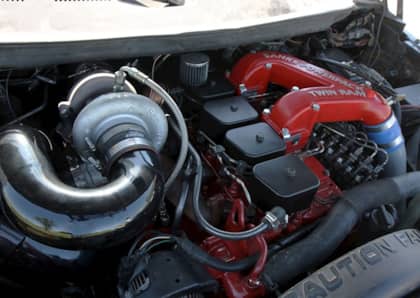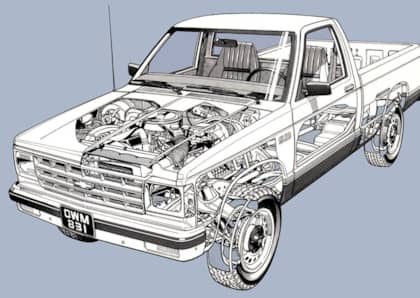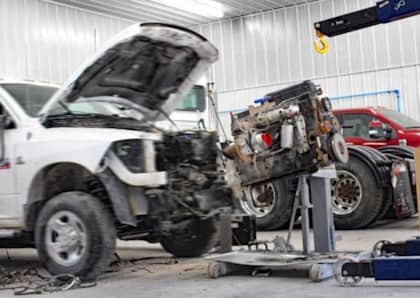Hold Up on the "EV Revolution," Toyota has the Right Idea for an Uncertain Automotive Future
If you were to go back in time just two years, you’d find the automotive market was in a very different place than it is today. Back then, we were still at the height of a supply shortage that led to empty dealer lots and wild markups, even on the most mainstream cars and trucks.

In 2022, EVs were hot as can be. Many people would tell you electric cars were simply the inevitable future, and it seemed automakers couldn’t get them onto the market fast enough.

General Motors, Ford, Stellantis and just about every European automaker were pledging to be "all-in" on electric vehicles. And many of them had boldly stated goals to eliminate their internal combustion vehicles altogether over the coming decade.
Driven partly by a temporarily skewed automotive market, free-flowing money and ambitious government mandates to transition to electric-only, it seemed like it was all about EVs.
Toyota Says "Not So Fast"
Then there was Toyota, the Japanese giant that pioneered electrification and hybrid technology with the Prius some 25 years ago, and since then has trickled its hybrid tech across its entire lineup. Most recently to trucks and SUVs.

Toyota’s stance on the coming EV revolution was much different, with the company being publicly hesitant to take on the “electric or bust” position that so many other automakers were adopting.
It wasn’t that Toyota was saying “no” to EVs completely. It would indeed develop its own battery electric vehicles, but they would represent just one part of the company’s strategy. With so much on the line, Toyota was going to take a longer view and let customer demand drive their product decisions.

And it’s hard to blame them. Hybrids had become the company’s bread and butter, with each generation of their system getting better and better, to the point where many of their high volume vehicles were now hybrid-only.
The new 2025 Camry? It only comes with a hybrid powertrain now. And with that comes much better fuel economy and more power than before, all for not much more money than it used to be listed for.

But despite putting millions upon millions of clean-running, fuel-efficient hybrid vehicles on the road, Toyota (and Lexus) soon came under fire by EV extremists for its more measured approach to battery electric vehicles.

Critics said the company was playing it too safe, and that its hard-won market dominance would slip away if it lagged on the electric transition. Prius and Camry were out, Hyundai Ioniq and Volkswagen ID were in. All those hybrids? They'd simply be a forgotten stepping-stone to the all-electric future.
How Quickly Things Change
But now, it’s looking more and more like Toyota was right all along. In just two short years, the appetite for EVs has shrunk immensely, thanks largely to their ballooning sticker prices and high interest rates. Not to mention all of the inherent hurdles electric cars have when it comes to charging infrastructure and real-world usability.

Not only have EVs become a hard sell for established automakers, they are not profitable for them either. And that’s before you throw in all the government credits and extra incentives that are being used to help sell them.
In recent months we’ve seen GM, Ford and others all announce major scaling back of their EV plans and production goals, and in the case of GM, the company is rapidly scrambling to develop hybrid pickup trucks.

The EV Reality
To be clear, this article is not intended to bash EVs. I currently own a Tesla and like it a lot. If they fit your life, electric vehicles can indeed be great. But for the moment at least, there seems to be a ceiling for demand that we are brushing up against.
The reality is that for many consumers a hybrid or fuel efficient gasoline vehicle is simply a more sensible, trouble-free choice. One that’s usually cheaper to buy and easier to own while still having a low impact on overall emissions. And Toyota is happy to welcome those customers.

On the contrary, American car companies simply decided to stop selling smaller cars and sedans in the late 2010s. All as Toyota continues to build and update its core models like the Corolla and Camry.
Sure, your local dealer would love to sell you a loaded out Sequoia, Tundra or Grand Highlander (all with available hybrid power), but they also still move a lot of entry-level models that don’t break the bank.

Let’s not forget about plug-in hybrids either. Both Toyota and Lexus offer some of the best PHEVs on the market. And with something like a RAV4 Prime, drivers can charge up at home for and never use gasoline for their daily commutes, but run like a normal gasoline vehicle for longer trips. No routine or driving style change needed.

Then there’s the latest version of the Toyota Prius, which has elevated both its styling and performance to new levels. For many buyers it is a genuine, equally efficient alternative to all-electric sedans like the Tesla Model 3. If you like choice from your automakers, Toyota has more options than anyone.

Fun Cars Still Matter
Best of all, Toyota’s more rational, restrained approach during this period of transition and uncertainty doesn’t mean they’ve given up on building "riskier," more niche enthusiast vehicles. In fact, the opposite is true.

Perhaps I’m biased, but a lot of my love for what Toyota’s currently doing is because I’m a life-long car enthusiast. In contrast to many other brands, Toyota’s current lineup of enthusiast offerings is as good as its been in decades — if not ever.
From the inexpensive, extremely fun GR86 to the rally-bred GR Corolla and the flagship GR Supra, Toyota dealers currently stock three very different kinds of performance cars, all with available manual transmissions.

Want to spend more? You can go get a brand new Lexus IS500 or RC F with an old school, screaming naturally aspirated V8 under the hood. How rare is that these days?

Contrast that with GM, who seemingly doesn’t have any interest in selling enthusiast vehicles that don’t have Corvette or Cadillac badges and near six-figure starting prices.

As I’ve written about recently, the company that gave us greats like the Pontiac GTO, Camaro Z/28 and countless other fun, affordable cars has apparently given up on middle class enthusiasts completely. All as it hypes up the 0-60 times of its pricey EVs.
Cars for Today and Tomorrow
For now it seems, Toyota’s strategy has paid off. And it shows you can be willing to embrace electric vehicles without dedicating yourself to them.

And for those of who love cars and driving, Toyota has also shown that you can make sensible, profitable corporate decisions that still result in some genuinely fun and exciting cars and trucks for a global market.

Is it possible that the supposed EV revolution does indeed go through on schedule, and that gasoline and hybrid vehicles will become fossils in 10 years? Sure, anything could happen, I suppose.

Is there a breakthrough in battery technology just around the corner that Toyota could miss out on because it hasn’t re-invented its company to be electric-only? Anything is possible.
If one were betting, right now it’s looking like the odds of those things happening are quite low. And with its current, highly diversified lineup, Toyota has hedged its bets better than anyone in the industry.
More From Driving Line
- Is the Mk4 Supra Overrated? We get to the bottom of the issue right here.
- Has GM given up on enthusiasts, or is there still hope?







